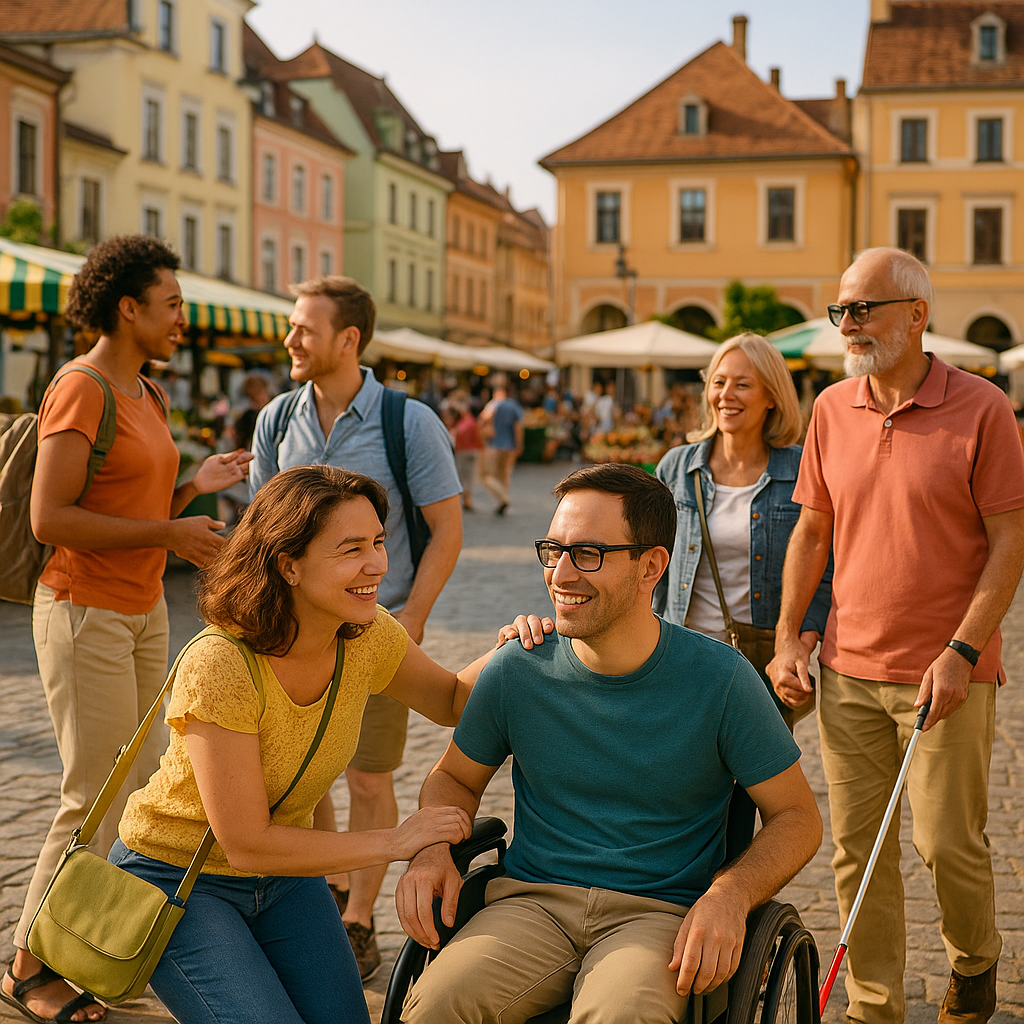From accessible tourism to convivial tourism: a shift in perspective
For years, we’ve talked about accessible tourism as if it were a separate category, a niche meant only for people with disabilities. Something extra. And yet, the idea that traveling should be a right and a shared experience is much bigger than that. That’s why it’s time to evolve: from accessible tourism to convivial tourism.
This isn’t just a word swap. It’s a paradigm shift.

Why the term matters
Saying accessible tourism focuses on the barrier — what’s missing: the ramp that isn’t there, the hotel that fails to comply, the bus that never shows up. Talking about convivial tourism focuses on what’s happening: the town square that welcomes everyone, the restaurant eager to serve anyone who’s hungry, the destination opening its doors like a proud host.
Conviviality goes beyond accessibility: it embraces travelers, residents, businesses, the natural environment, and the local culture. It’s a warmer, more human concept that invites us to share, not just to “allow access.”
What this change implies
Shifting to convivial tourism means integrating three key dimensions:
- For everyone: not only for travelers with disabilities, but also for families with kids, seniors, visitors who don’t speak the language, and local citizens who also deserve to enjoy their city without barriers.
- Sustainable and respectful: if tourism causes noise, pollution, or pushes locals out, that’s not conviviality — it’s invasion.
- Enriching for the destination: a good trip leaves more than money on the table. It leaves learning, collaboration, stories to tell, and relationships that last.
how to make it real
Adopting convivial tourism as a framework means rethinking the entire ecosystem:
- Involving local communities in designing experiences.
- Guaranteeing universal accessibility — not as a minimum requirement but as an added value that enhances everyone’s experience.
- Creating routes and services that respect the environment and the local pace of life.
- Designing tourism products that are attractive for residents too, so there’s no “us” versus “them.”
A purpose-driven concept
Convivial tourism is not just marketing. It’s a commitment to a way of traveling that generates positive impact. It’s tourism that adds value, that transforms, that reminds us sharing a table, a street, and a landscape is the best way to truly meet each other.
At IMPULSA IGUALDAD and TUR4all Travel, we believe this is the natural evolution of accessible tourism: stop talking about what’s missing and start talking about what we can build together.
Because if tourism doesn’t help us live together better, then it’s not doing its job.
Fran J. Sardón, President of IMPULSA IGUALDAD and TUR4all Travel.
Photo: Jorge Villa (Servimedia)


